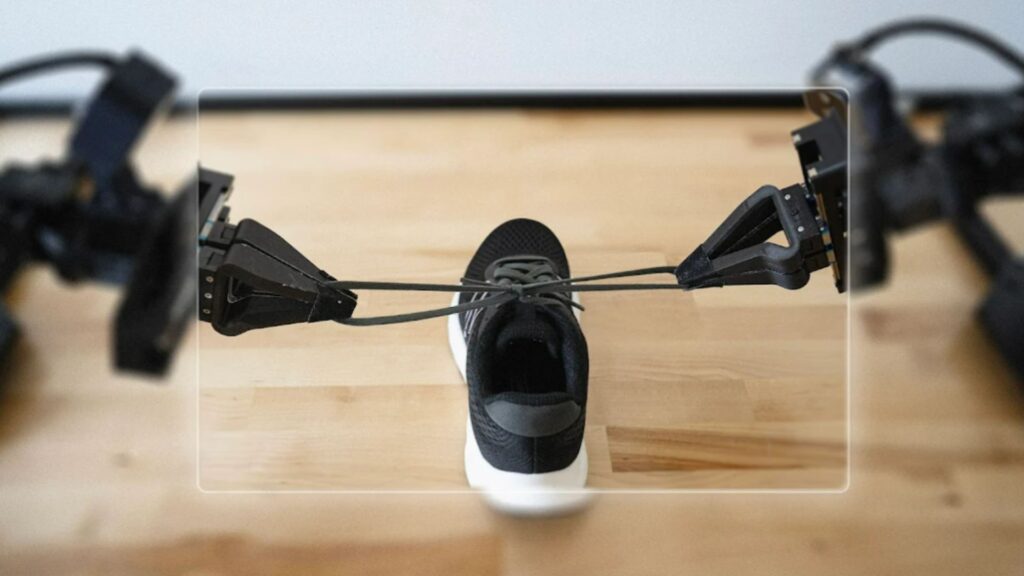In a remarkable advancement in robotic technology, the team at Google DeepMind has unveiled their two latest AI systems, ALOHA Unleashed and DemoStart, boasting enhanced dexterity and efficiency. These innovative systems are designed to tackle two-armed manipulation tasks and control multi-fingered robotic hands, making significant strides toward achieving human-like dexterity in robotics.
ALOHA 2, the next iteration of its predecessor, showcases a pair of teleoperable hands that streamline the training process and facilitate data collection. This innovative design allows robots to learn new tasks faster and requires significantly fewer demonstrations than previous models.
The innovative ergonomic design and advanced learning methods within ALOHA 2 allow the robot to execute intricate tasks, such as tying shoelaces and folding t-shirts, by remotely controlling its actions. The data gathered through this process enhances the robot’s ability to operate independently in the future, paving the way for robots to become valuable assistants in various settings, from homes to workplaces.
Pioneering Dexterous AI Technology
The control of a multi-fingered robotic hand presents unique challenges, given the complexity added by more fingers, joints, and sensors. DemoStart emerges as a cutting-edge solution, employing reinforcement learning to gradually cultivate a robot’s dexterous abilities through simulations. This revolutionary method is especially advantageous for devices featuring intricate capabilities, such as multi-fingered hands.
DemoStart initiates its learning process with simple tasks and methodically advances to more complex ones, achieving proficiency step by step. Notably, this approach requires only 1% of the simulated demonstrations compared to traditional learning techniques, dramatically enhancing efficiency in the robotic training process.
Collectively, these advancements signify a crucial milestone in the development of dexterous robots. As AI systems like ALOHA 2 and DemoStart evolve, they hold the promise of dramatically transforming the role of robots in everyday life, elevating their potential as assistants in a myriad of environments.
While the journey toward achieving human-level dexterity remains ongoing, the innovations presented by Google DeepMind inspire optimism for the future of robotics and their integration into our daily lives.
In summary, Google DeepMind’s latest developments in AI-driven robotics mark a significant leap forward in creating dexterous machines capable of performing complex tasks with greater autonomy. As these technologies continue to evolve, they could greatly enhance our interactions with robots, making them indispensable partners in various domains.





 new AI systems for robotics:
new AI systems for robotics: ALOHA Unleashed to perform two-armed manipulation tasks
ALOHA Unleashed to perform two-armed manipulation tasks DemoStart to control a multi-fingered robotic hand
DemoStart to control a multi-fingered robotic hand https://t.co/SV3TsXIhhh pic.twitter.com/JnbZEMwB1j
https://t.co/SV3TsXIhhh pic.twitter.com/JnbZEMwB1j